第88章 CHAPTER THE TWENTIETH. TOUCHING IT.(6)
Glenarm." For a while he paused, with his eye fixed on that sentence; and with the happiness of three people--of Anne, who had loved him; of Arnold, who had served him; of Blanche, guiltless of injuring him--resting on the decision that guided his movements for the next day. After what had passed that morning between Arnold and Blanche, if he remained at Lady Lundie's, he had no alternative but to perform his promise to Anne. If he returned to his brother's house, he had no alternative but to desert Anne, on the infamous pretext that she was Arnold's wife.
He suddenly tossed the letter away from him on the table, and snatched a sheet of note-paper out of the writing-case. "Here goes for Mrs. Glenarm!" he said to himself; and wrote back to his brother, in one line: "Dear Julius, Expect me to-morrow. G. D."
The impassible man-servant stood by while he wrote, looking at his magnificent breadth of chest, and thinking what a glorious "staying-power" was there for the last terrible mile of the coming race.
"There you are!" he said, and handed his note to the man.
"All right, Geoffrey?" asked a friendly voice behind him.
He turned--and saw Arnold, anxious for news of the consultation with Sir Patrick.
"Yes," he said. "All right."
------------ NOTE.--There are certain readers who feel a disposition to doubt Facts, when they meet with them in a work of fiction. Persons of this way of thinking may be profitably referred to the book which first suggested to me the idea of writing the present Novel. The book is the Report of the Royal Commissioners on The Laws of Marriage. Published by the Queen's Printers For her Majesty's Stationery Office. (London, 1868.)
What Sir Patrick says professionally of Scotch Marriages in this chapter is taken from this high authority. What the lawyer (in the Prologue) says professionally of Irish Marriages is also derived from the same source. It is needless to encumber these pages with quotations. But as a means of satisfying my readers that they may depend on me, I subjoin an extract from my list of references to the Report of the Marriage Commission, which any persons who may be so inclined can verify for themselves.
_Irish Marriages_ (In the Prologue).--See Report, pages XII., XIII., XXIV.
_Irregular Marriages in Scotland._--Statement of the law by Lord Deas. Report, page XVI.--Marriages of children of tender years.
Examination of Mr. Muirhead by Lord Chelmsford (Question 689).--Interchange of consent, established by inference.
Examination of Mr. Muirhead by the Lord Justice Clerk (Question 654)--Marriage where consent has never been interchanged.
Observations of Lord Deas. Report, page XIX.--Contradiction of opinions between authorities. Report, pages XIX., XX.--Legal provision for the sale of horses and dogs. No legal provision for the marriage of men and women. Mr. Seeton's Remarks. Report, page XXX.--Conclusion of the Commissioners. In spite of the arguments advanced before them in favor of not interfering with Irregular Marriages in Scotland, the Commissioners declare their opinion that "Such marriages ought not to continue." (Report, page XXXIV.)
In reference to the arguments (alluded to above) in favor of allowing the present disgraceful state of things to continue, I find them resting mainly on these grounds: That Scotland doesn't like being interfered with by England (!). That Irregular Marriages cost nothing (!!). That they are diminishing in number, and may therefore be trusted, in course of time, to exhaust themselves (!!!). That they act, on certain occasions, in the capacity of a moral trap to catch a profligate man (!!!!). Such is the elevated point of view from which the Institution of Marriage is regarded by some of the most pious and learned men in Scotland. A legal enactment providing for the sale of your wife, when you have done with her, or of your husband; when you "really can't put up with him any longer," appears to be all that is wanting to render this North British estimate of the "Estate of Matrimony" practically complete. It is only fair to add that, of the witnesses giving evidence--oral and written--before the Commissioners, fully one-half regard the Irregular Marriages of Scotland from the Christian and the civilized point of view, and entirely agree with the authoritative conclusion already cited--that such marriages ought to be abolished.
W. C.